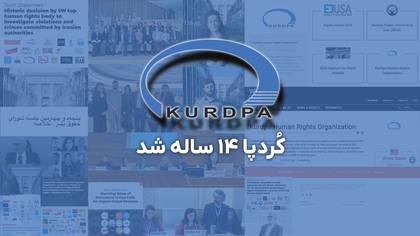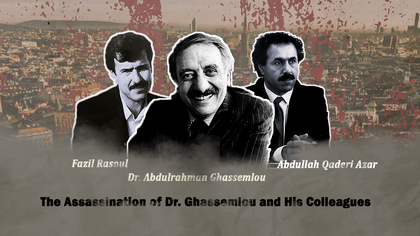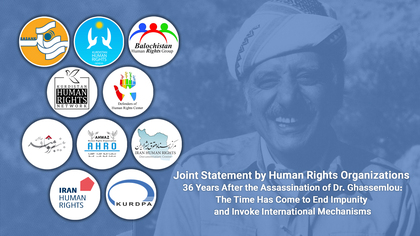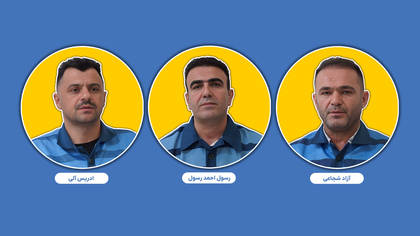Iran threatens to stop Gulf oil if sanctions widened
15:41 - 28 December 2011

Kurdpa - Iran threatened on Tuesday to stop the flow of oil through the Strait of Hormuz if foreign sanctions were imposed on its crude exports over its nuclear ambitions, a move that could trigger military conflict with economies dependent on Gulf oil.
Western tensions with Iran have increased since a November 8 report by the U.N. nuclear watchdog saying Tehran appears to have worked on designing an atomic bomb and may still be pursuing research to that end. Iran strongly denies this and says it is developing nuclear energy for peaceful purposes.
Iran has defiantly expanded nuclear activity despite four rounds of U.N. sanctions meted out since 2006 over its refusal to suspend sensitive uranium enrichment and open up to U.N. nuclear inspectors and investigators.
Many diplomats and analysts believe only sanctions targeting Iran\'s lifeblood oil sector might be painful enough to make it change course, but Russia and China - big trade partners of Tehran - have blocked such a move at the United Nations.
Iran\'s warning on Tuesday came three weeks after EU foreign ministers decided to tighten sanctions over the U.N. watchdog report and laid out plans for a possible embargo of oil from the world\'s No. 5 crude exporter.
\"If they (the West) impose sanctions on Iran\'s oil exports, then even one drop of oil cannot flow from the Strait of Hormuz,\" the official Iranian news agency IRNA quoted Iran\'s First Vice President Mohammad Reza Rahimi as saying.
The U.S. State Department said it saw \"an element of bluster\" in the threat but underscored that the United States would support the free flow of oil.
\"It\'s another attempt to distract attention away from the real issue, which is their continued non-compliance with their international nuclear obligations,\" spokesman Mark Toner said.
Rahimi\'s remarks coincided with a 10-day Iranian naval exercise in the Strait and nearby waters, a show of military force that began on Saturday.
\"Our enemies will give up on their plots against Iran only if we give them a firm and strong lesson,\" Rahimi said.
Source - Reuters
Western tensions with Iran have increased since a November 8 report by the U.N. nuclear watchdog saying Tehran appears to have worked on designing an atomic bomb and may still be pursuing research to that end. Iran strongly denies this and says it is developing nuclear energy for peaceful purposes.
Iran has defiantly expanded nuclear activity despite four rounds of U.N. sanctions meted out since 2006 over its refusal to suspend sensitive uranium enrichment and open up to U.N. nuclear inspectors and investigators.
Many diplomats and analysts believe only sanctions targeting Iran\'s lifeblood oil sector might be painful enough to make it change course, but Russia and China - big trade partners of Tehran - have blocked such a move at the United Nations.
Iran\'s warning on Tuesday came three weeks after EU foreign ministers decided to tighten sanctions over the U.N. watchdog report and laid out plans for a possible embargo of oil from the world\'s No. 5 crude exporter.
\"If they (the West) impose sanctions on Iran\'s oil exports, then even one drop of oil cannot flow from the Strait of Hormuz,\" the official Iranian news agency IRNA quoted Iran\'s First Vice President Mohammad Reza Rahimi as saying.
The U.S. State Department said it saw \"an element of bluster\" in the threat but underscored that the United States would support the free flow of oil.
\"It\'s another attempt to distract attention away from the real issue, which is their continued non-compliance with their international nuclear obligations,\" spokesman Mark Toner said.
Rahimi\'s remarks coincided with a 10-day Iranian naval exercise in the Strait and nearby waters, a show of military force that began on Saturday.
\"Our enemies will give up on their plots against Iran only if we give them a firm and strong lesson,\" Rahimi said.
Source - Reuters



